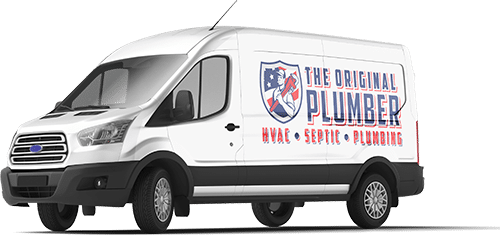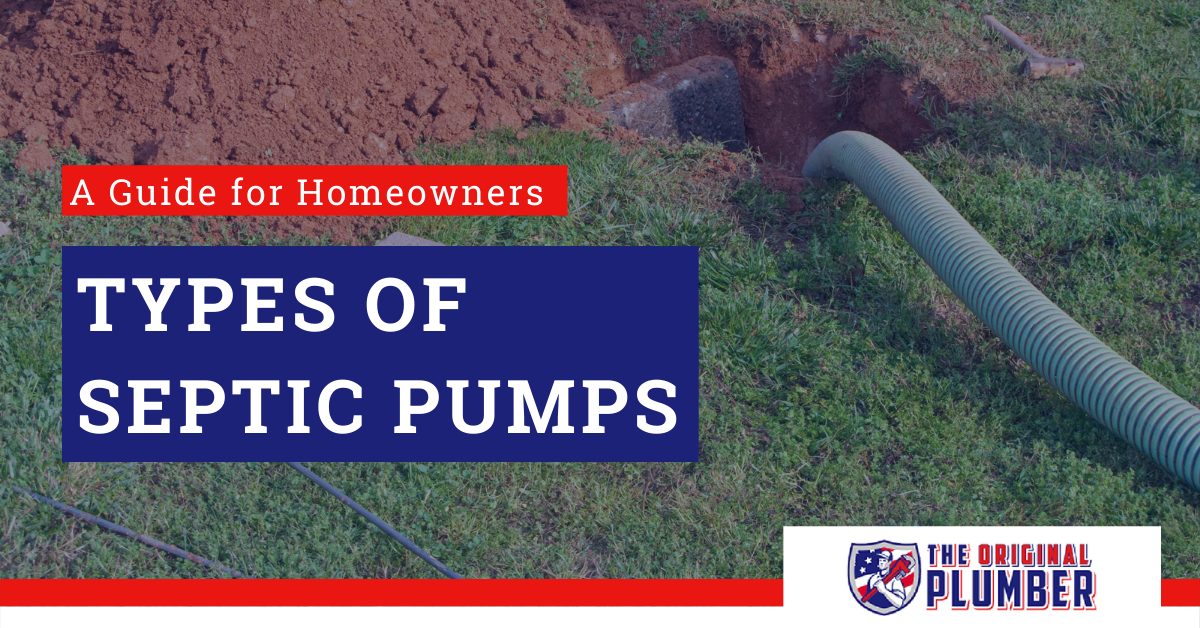If your home is using a septic tank, it’s important to understand the ins and outs of the septic system. Knowing exactly what type of septic system you have and what your septic tank needs are is critical in making sure it is running smoothly.
However, it can be confusing navigating the different tools available. There are many different types of septic pumps. It can be easy to mix up which is which!
How do septic tanks and pumps work?
Septic tanks are buried underground and have a long pipe leading to the surface. Septic tanks used to collect wastewater from toilets, sinks, laundry, showers, or washing machines before it mixes with groundwater. The septic effluent (treated wastewater) eventually makes its way to your drainfield, where the groundwater further filters the effluent.
The septic tank is usually emptied by a pumping system that runs on electricity or gas. Septic tank pumps use either water pressure or vacuum power to move sewage out of the tank. It takes them away for disposal at an approved facility that is away from your home.
Types of Septic Tank Pumps Available
When your tank needs a little more than just gravity to help keep waste water flowing, that’s where septic pumps can come in. There are many options out there for pumps and systems. Different types of septic pumps work better with specific septic systems.
The simplest way to explain the difference between a sump pump and a sewage pump is the type of material they work with. You use a sump pump for clear water or treated wastewater. You use a sewage pump to handle raw sewage.
If you don’t know which type of septic system you have, just give us a call! We can help you understand your septic system with an inspection. That will help you determine if a sump pump or sewage pump is right for you.
What is a sump pump?
Sump pumps are used to move standing water between locations or away from a space. Typically, sump pumps take the septic tank’s discharge from the tank and will move it to your drain field or a secondary wastewater treatment system. A sump or effluent pump is best for use with minimal solids in your waste water.
What are high head effluent pumps?
High head effluent pumps are another type of submersible pump. High head effluent pumps are most commonly used in an aerobic septic system. An aerobic system uses oxygen to break down solid waste, while an anaerobic tank does not.
A high head effluent pump typically brings the effluent to a spray system or drip irrigation systems. Two types of high head effluent pumps are mid suction pumps and bottom suction pumps.
High head effluent pumps are also referred to as turbine pumps or deep water well pumps. These are high-pressure pumps. When using these with your aerobic treatment system, they are only meant to handle treated wastewater and clear water.
What is a sewage ejector pump?
The third type of pump is the sewage ejector pump. It moves sewage from inside a home. Sewage pumps are best when you need to pump raw sewage wastewater. They can handle solids with around a two-inch diameter.
For instance, if you have a bathroom in the basement, a sewage ejector pump helps your wastewater make it out of the house. Sewage ejector pumps are best for low-pressure pumping jobs.
What is a septic lift station?
A septic lift station pushes the septic water up to a higher elevation. You’ll need a septic lift station in instances where the drain field is located higher than the septic tank. You may also need this if you have two septic tanks on your property. It is common to use a sewage ejector pump with a septic lift station.
Do you live in a neighborhood or community where all of the homes are downhill from the sewage mains? Your community likely uses sewage pumping stations. These use larger, centralized chambers that multiple homes or buildings can connect to. The wastewater will go from your home to this centralized chamber, where it is ground up and then sent to a treatment facility.
What is a grinder pump?
Sewage grinder pumps are best for pumping raw sewage. As their name suggests, grinder pumps will grind up the sewage before pumping it out.
A sewage grinder pump is commonly used for residences with a shared sewer main. For example, if you’re moving wastewater to a pressurized city sewer main, you’d use a grinder pump.
Sewage grinder pumps are also commonly used if you need to pump over high elevation or long distances since they use high pressure. Grinder pumps are stronger than sewage ejector pumps, but should only be used if you have 30 feet or more of head. Otherwise, the sewage grinder pump will wear and tear quickly.
What kind of pump do I need for my tank?
The best septic pump is going to depend on your septic system and specific septic tank needs. Ask yourself the following questions when shopping for a submersible pump for your septic system:
- What is the pump’s application? Ask yourself what exactly you’ll be using the septic pump for. Also, consider if you will be using the pump to relocate filtered water or sewage water. That will determine if you need a sewage or grinder pump for raw sewage pumping jobs versus sump pumps for clear water.
- What flow rates will the pump need to handle? Consider what you’re anticipating the maximum gallons per minute (GPM) will be.
- What kind of head pressure will the pump need to handle? This will help you determine if you’ll need to use high-pressure submersible pumps or something that uses a lower pressure. Head pressure is the force needed to push the water along when the pump relocates it. You will need to calculate the total dynamic head (TDH) for this step.
To calculate the TDH, you need to calculate the vertical rise first. Then, calculate the friction loss. You calculate the friction loss with the pipe size, run length, and the pump’s flow rate. Add the vertical rise and the friction loss together and you’ve got your TDH!
Reliable Plumbers for Atlanta’s Septic Systems
Our team of professional plumbing experts serves the Atlanta metro area. We’re available to Northern Georgia neighborhoods 24/7 because we understand emergencies happen. And if you need help deciding which pump to go with for your needs, give us a call!
We offer honest, up-front pricing so you are not met with any surprises. Call us today for a free quote on your septic services. Whether you need routine septic tank pumping or an installation job, we are here for you!




